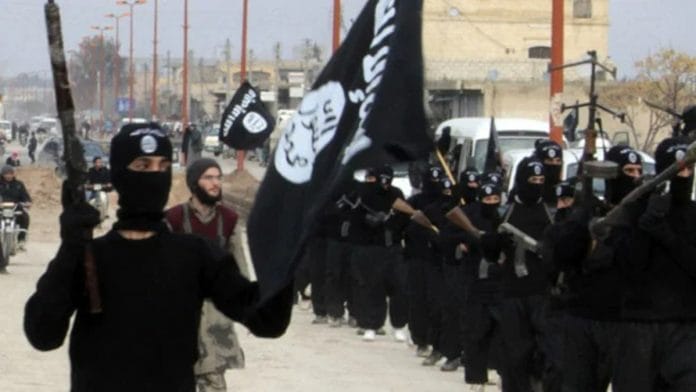New Delhi: The Islamic State has claimed responsibility for an attack on an Indian-owned ruby mine in Mozambique, claiming in the November issue of its magazine al-Naba that the company “steals the rich of the Muslims”.
Last month’s attack targeted the Montepuez ruby mine, one of the world’s largest, which is operated by the Gemrock Mining company, a subsidiary of Indian-owned gemstone company Diacolour International.
The October 20 attacks had forced Gemrock and South African Gemfields to halt operations at the Montepuez mine, among mounting security concerns. According to al-Naba, the burning of company vehicles and mining equipment caused “great financial losses.”
The attacks are part of an increasingly savage campaign carried out by al-Shabaab, the local wing of the Islamic State, which has claimed the lives of thousands of people in recent years. The jihadist group briefly captured the town of Palma last year, leaving behind dozens of decapitated bodies on the streets as it eventually withdrew.
Islamic State forces have also been carrying out ethnic-cleansing operations targeting Christian-dominated villages, Human Rights Watch reported.
The strikes on the ruby mines are part of a wider campaign by the Islamic State to extract revenues from Mozambique’s massive natural resources, which include the world’s fourth-largest natural gas field. Led by French energy giant Total SE, a global consortium that includes ONGC Videsh and Oil India, has been working on a $24.1 billion liquefied natural gas in the Afungi peninsula, off Palma.
“Even if the Islamic State doesn’t succeed in capturing and holding territory,” a London-based analyst told ThePrint, “it’s already making a fortune from extorting contractors and imposing taxes on supply lines”.
Even though Mozambique’s armed forces — controversially aided by South African mercenary firms Paramount and Dyck Advisory Group — have been engaged in ferocious fighting against the Islamic State, they have had limited success in containing the threat.
Islamic State ranks have been strengthened by the arrival of large numbers of instructors and trainers from the jihadist group’s units in North Africa and West Asia.
Also Read: Islamic State global spokesperson calls on Asian Muslims to unite for attacks on India
The rise of the African ISIS
The conflict, expert Mario Machaqueiro has written, dates back to the cultivation of Sufi brotherhoods by colonial Portugal, in an effort to hold back the Frelimo national independence movement. The Christian Makonde minority in northern Mozambique backed Left-leaning Frelimo, while the Mwani Muslim majority backed the Western-supported, anti-communist Resistência Nacional Moçambicana or Renamo.
Following independence, the Makonde winners came to monopolise resources like timber and mining — leading to increasing communal conflict from 2005.
The crisis escalated with the emergence of a new generation of Salafist clerics, recruited by missionary organisations to study in North Africa, West Asia, and South Asia. These neo-fundamentalist clerics used youth resentment over economic underdevelopment and lack of political representation to expand their influence.
From the mid-2000s, these new Salafist groups begin movements to withdraw children from government-run schools and to end traditional folk religious practices. The ranks of their followers swelled from early in the next decade, when followers of the slain far-Right Kenyan preacher Aboud Rogo Mohammed — mainly ethnic Mwani, like Cabo Delgado’s own Muslims—migrated to the region.
The wealth generated by oil and mining ironically fuelled the tensions, with local youth finding themselves without the education and capital needed to cash in on the new opportunities.
A harsh police crackdown in 2015 failed to solve the problem, which spread from the single district of Mocímboa da Praia to six other districts in six other areas in Cabo Delgado. Fighters driven out of neighbouring Tanzania swelled the ranks of the jihadists.
(Edited by Uttara Ramaswamy)
Also Read: At least 40 Indians who joined ISIS now in Middle-East prison camps, find there’s no way home






